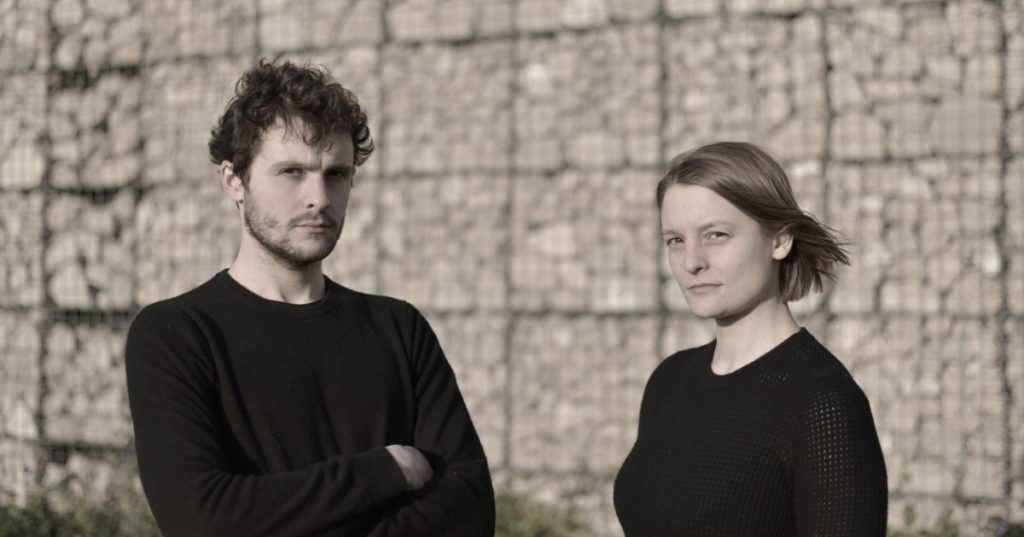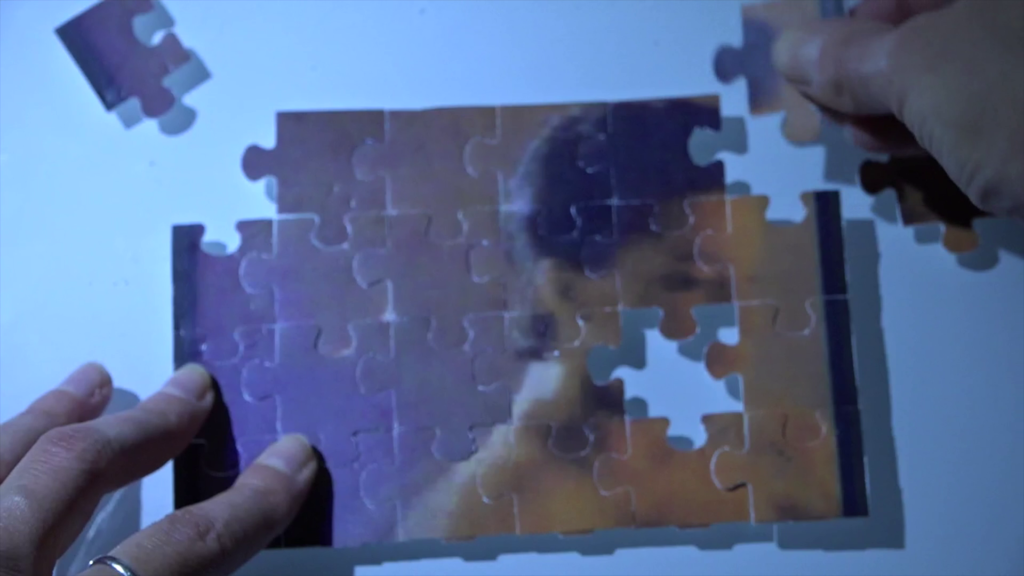A post-Gutenberg programme: the music of insignificance
Feature
George Barton, one half of the electrifying GBSR Duo, introduces their upcoming AV Luminate show investigating human solitude and identity at the mercy of history and technology.

© Dejan Mrdja
In his books of the 1960s Marshall McLuhan expounded the idea of the human mind being defined by the kinds of media to which it was exposed. The era of the printing press, and of the conception of books as stable repositories of knowledge, had conditioned ‘Gutenberg Man’; electronic media, especially television, had led to the creation of a rather different different kind of human – the owner of what has been called the ‘post-Gutenberg mind’. Conditioned less by the stability of the printed page and more by media that is immediate and accessible on a whim, the post-Gutenberg mind had involuntarily exchanged a quantum of its attention span for increased comfort with dislocation, discontinuity and fragmentation.
The features that McLuhan saw as the key defining characteristics of the new media of his time have of course now been turbocharged. Scrolling Twitter can bring cute cats, consumer complaints and genocide with curatorial equanimity and identical presentation; these tiny micro-discontinuities now constitute a large part of the texture of existence. Many of us are now disturbingly good at riding these moguls of modern existence.
But these dislocations also have a grander counterpart: cataclysmic events that shake the fundamental architecture of life, forcing us to face up to our own insignificance in the face of the broad sweep of global events.
I remember one such moment for myself last year. In the churn of the news cycle (a key determining condition of the post-Gutenberg mind), it’s easy to forget that in July 2020 several cases had been noted of immunity to covid-19 being impermanent, and there was a theory in currency that vaccinating against the disease could be impossible. This theory had many implications of course, but one of them was that public gatherings could be hazardous for the foreseeable future, perhaps even for decades.
Though the threats to livelihood that came from this prophecy were not trifling, the tremors spread still deeper. For those for whom making and appreciating art constitutes a large part of life’s focus, it’s easy to think lazily of art as a perennially-persisting Platonic realm. This can be a kind of default working hypothesis even if intellectually it’s understood that the meaning and significance of art objects are and can only be entirely contingent on the society in which they are produced, and are only of significance within its game (leaving aside for now the fact that for some, including the government, the arts may only draw value from the economics of audiences buying crisps on the way to the theatre). The real possibility that live music and theatre could stop forever, aside from being economically very concerning for those who make their living by playing on a stage, drove a spike protein right into the heart of this cognitive dissonance: the lazy Platonism of casual thought about art was thrown into a head-on collision with the dawning reality that the art you knew could end and, perhaps more disorientatingly, never really had any permanence.
The shock of not only realising that your career might become obsolete but that the central sun of your life had been revealed to be a kind of contingent luxury has to be navigated with the same equanimity as when browsing Twitter. Watch the cat video, forget seeing the buildings being bombed; go for a walk, forget that live art may have ended.
‘I think this piece in a way is an acknowledgement of the idea of history trickling through our fingers’
No musical performance can ‘deal with’ such things, but our Kings Place concert is our tentative attempt to compile a programme that takes such lurching dislocations as its theme. Beginning with the reassuring presence of Joanna Bailie’s black-and-white panoramic photograph of a boys’ school in Roll Call, over the course of the piece we are gradually brought into a world of increasing uncertainty and elision. The long (true) biography that the pianist reads for the first schoolboy gives way to shorter (fictional) biographies, brief statements, names, and finally piano notes. We lose our clear sense of the subjects’ identities both as the piece continues and as a broader sweep of time metaphorically passes – as we move forward towards our own era, perhaps not only are the past and the individuals in it being forgotten, but our firm and grounded sense of personal identity is itself slipping away.

This mise-en-scène kicks off a tour of various kinds of threats to the integrity and primacy of self. Oliveros reflects on the end of 19th-century polite morality ‘and its attendant institutionalised oppression of the female sex’ but also perhaps on one kind of constructed female identity, the performative femininity of the diva. CHAINES depicts an Instagrammable environment of chuckling kids and friendly cats that seems gradually to descend into domestic psychosis, an outward projection of socially-sanctioned wholesomeness turning in on itself. Olly Sellwood portrays an epochal battle between piano and drum kit, the instrument of the 20th century’s popular music fighting to take the soul of the 19th’s.
At one thematic extreme, the war-tortures of Abu Ghraib in Graham Fitkin’s Chain of Command lead us to consider the effects of cataclysmic events on those caught up in them, as well as the effect of the rolling news cycle on the modern psyche. At the other, Nicole Lizée’s Softcore muses on the proliferation of a cultural artefact, in this case the image and music of Prince: video and music fragments repeat and glitch, reflecting the memeification of an artist who was himself personally something of a mystery, his identity famously replaced at one point by a symbol, but replaced more permanently perhaps by accrued fame.
Is this music of ‘inherent’ value? Can’t think about that right now, I’m going for a walk, then I’ll check my emails, try to forget about the question. From Abu Ghraib to Prince, from racial violence to cat videos: just keep scrolling. Please buy some crisps at the interval.